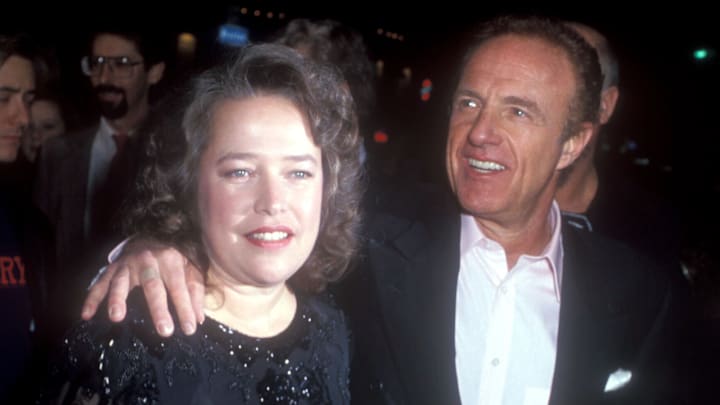Misery did for "number one fans" what Jaws did for the water, and I want to look at some of the key elements that make this movie superb. This psychological thriller film directed by Rob Reiner was based on the 1987 novel of the same name by Stephen King. Released in 1990, it stars James Caan as Paul Sheldon, a successful novelist, and Kathy Bates as Annie Wilkes, his obsessed fan. As the plot unfolds, one is reminded just how scary fandom can get.
The story revolves around Paul Sheldon, a novelist famous for his romance novels featuring the character Misery Chastain. After finishing his latest novel, he gets into a car accident during a blizzard and is rescued by his self-proclaimed number one fan, Annie Wilkes. However, Paul soon realizes that Annie is not as benevolent as she seems. She turns out to be unstable (to put it lightly) and holds Paul captive, forcing him to scrap his actual non-Misery book and rewrite his next "Misery" novel to her liking.
Themes of obsessive fandom are pretty much a constant in Misery, and Annie, through her obsession, blurs the lines between reality and fiction, as well as the perceived need for fans to have things their way. The story delves into the psychological effects of isolation and captivity, the power dynamics between captor and captive, and the struggle of an artist being forced (in this case quite literally) into conforming to an audience's expectations.
Misery and Paul Sheldon's hope
Paul Sheldon goes through some of the darkest moments imaginable in Misery, and reminds us of the possibility of facing unique hells in life. So, to me, one of the somewhat overlooked aspects of this story is simply Paul Sheldon's character, and how he symbolizes various things, such as hope, creativity, and basic things like relative normalcy. Mr. Sheldon is not a particularly flawed or perfect person, but he's an example of someone who unexpectedly ends up in turmoil, is pushed to the limit, but ultimately overcomes this largely imposed struggle.
Annie, in many ways, represents how life can make a mockery of hope. At first, all seems well with her, and she even seems nice, even if not perfect. However, she becomes every bit as threatening as his initial car crash, even though she had paradoxically saved his life. So, in that sense, Paul perfectly represents someone facing craziness from all directions, while being boxed in with limited defenses. Again, it is a rather unique hell, and it makes this film all the more plausible as something that could perhaps actually happen.
Performance of Kathy Bates
Though I hate to be another person who sort of overlooks James Caan's acting, it must be noted: Kathy Bates delivers a standout performance as Annie Wilkes, earning widespread acclaim and winning the Academy Award for Best Actress for her role. Her portrayal of the unhinged and menacing Annie is widely regarded as one of the most memorable performances in a Stephen King adaptation.
Though she's "the bad guy" here, she isn't quite "The Boogeyman." She has some sadistic tendencies, but it was perhaps a good decision for Reiner and crew to actually turn down the heat on her sadism, compared to how it was in the novel, to humanize the character a bit and make her more compelling (and dare I say relatable, at times?). She is easily one of the best Stephen King villains.
As an example of differences between the film and the novel: The infamous "hobbling" scene is done differently in the novel. In the film, it's perhaps vaguely less sadistic, even if still messed up. These slight alterations make a difference in how we might perceive Annie Wilkes.
She is still someone to fear, but the film makes her flaws more about her obsessiveness than elements of sadism, and that makes her more complex psychologically (at least I think). The character even comes across as someone you could negotiate with, if you can convince her that what you want is for the betterment of the "Misery" novel series. She really is that obsessed.

Critical and commercial success, and cultural impact
Misery"= received positive reviews from critics and was a commercial success, grossing over $61 million domestically against a budget of $20 million. The film's success was attributed in large part to the performances of the lead actors and the suspenseful direction by Rob Reiner (he previously directed the equally good, decidedly less scary King 1980s adaptation Stand By Me).
Misery has become a classic in the thriller genre and is often cited as one of the best adaptations of Stephen King's work. Kathy Bates' portrayal of Annie Wilkes has left a lasting impact on popular culture, with the character being frequently referenced and parodied in various media.
Again, I think this movie's underrated as a tale of the "triumph of the human spirit," but it's understandable that Annie would dominate most perceptions. After all, her quotable moments alternate from silly, to crazy, to scarily semi-romantic: "Now the time has come. I put two bullets in my gun. One for me, and one for you. Oh, darling, it will be so beautiful."
Misery is a gripping and suspenseful thriller that showcases strong performances and skillful direction, making it a memorable entry in both Stephen King's body of work and the thriller genre as a whole. Even as more King adaptations keep coming out, it's still true that few will truly match Misery."
